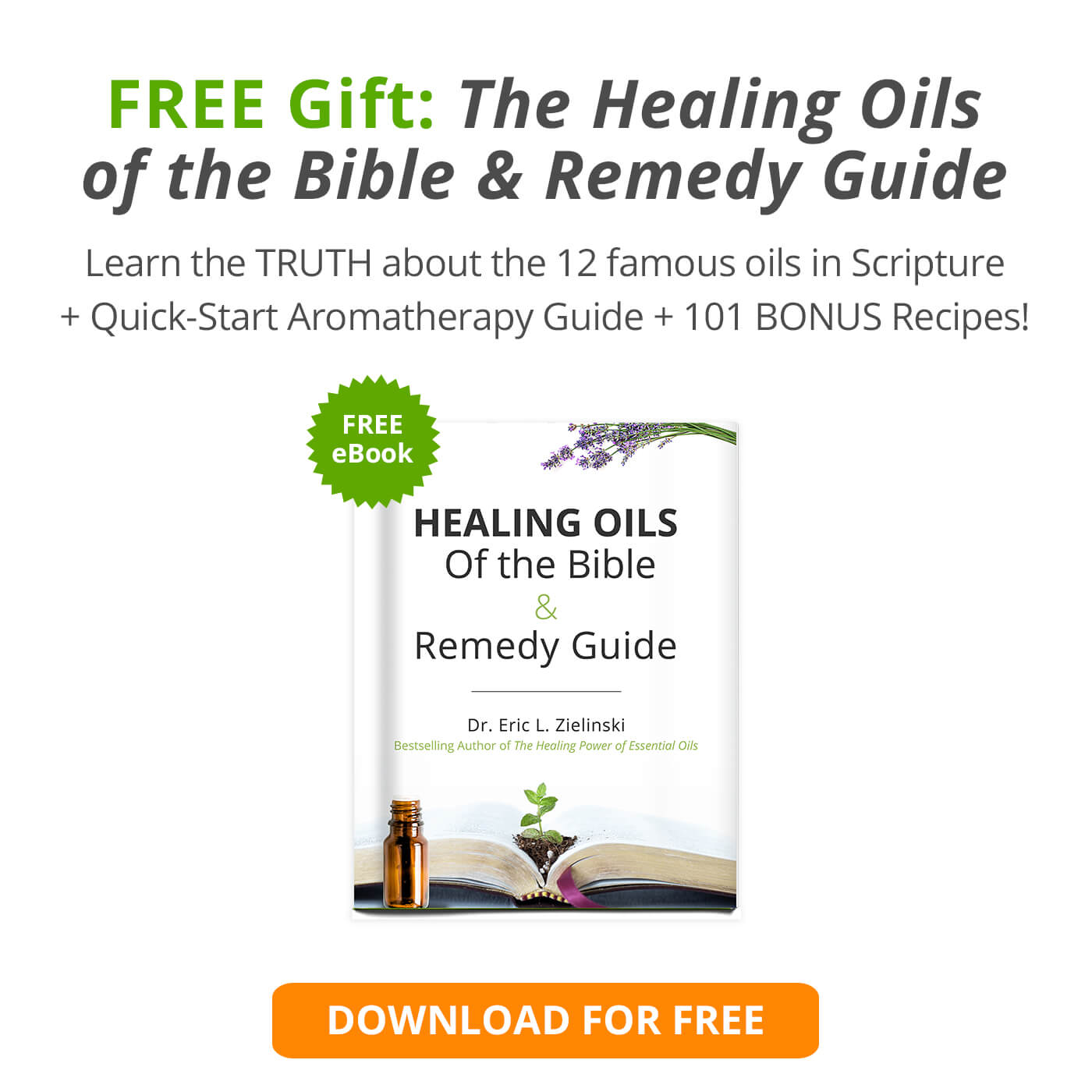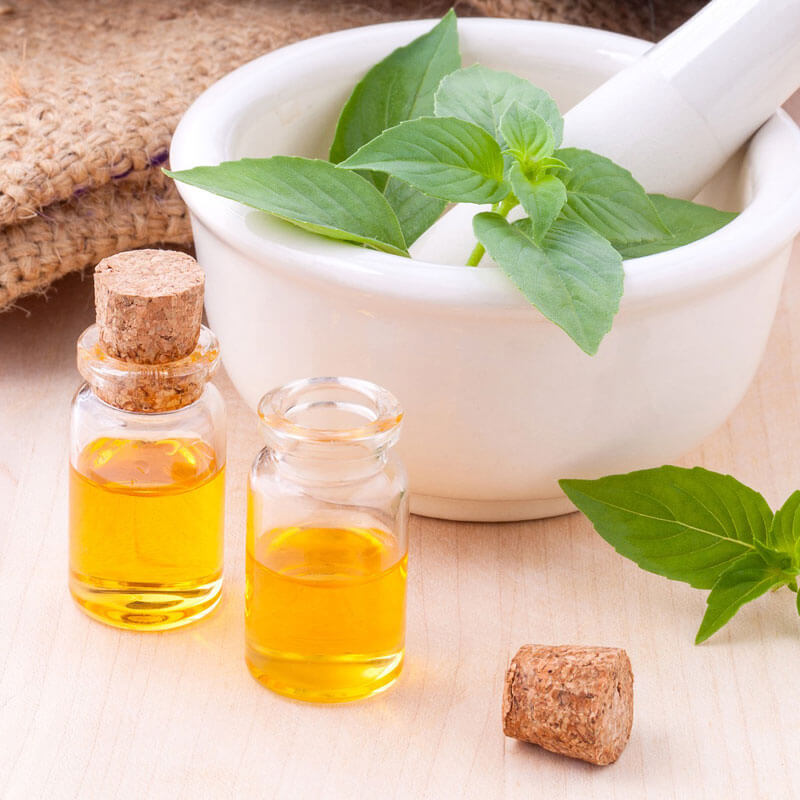One of the most abundant sources of the profoundly therapeutic d-limonene, orange essential oil benefits should top your list of natural solutions to consider adding to your medicine cabinet because they can be enjoyed relatively easily and on a strict budget. It’s one of the lowest priced essential oils on the market, but don’t let that scare you away. You don’t always get what you pay for – you get way more than what you pay for with this oil.
In fact, dollar-for-dollar, I’d choose orange essential oil (Citrus sinesis) over any of the expensive oils on the market like sandalwood, Roman chamomile and even the beloved frankincense.
Table of Contents
The Secret Power of Orange Essential Oil
By far, the most common question I get when being interviewed – whether it’s for radio, podcasts, documentaries or academic conferences – is, “If you could only choose 3 essential oils, what would they be and why?” My answer is always the same, clove, peppermint and orange.
- You can pretty much do anything with these three.
- They blend well together.
- And they are all “budget-friendly!”
That’s a win-win-win for everyone, right!
Few substances on the planet are as versatile – boosting mood, lifting up the spirits and even killing cancer cells like orange essential oil. The most prominent and noteworthy component of this powerhouse is d-limonene, confirmed to be a potent cancer-fighting agent.
In the words of the U.S. National Library of Medicine’s open chemistry database, PubChem, d-limonene is nothing to scoff at.
“D-Limonene is an oral dietary supplement containing a natural cyclic monoterpene and major component of the oil extracted from citrus peels with potential chemopreventive and antitumor activities. Although the mechanism of action has yet to be fully elucidated, limonene and its metabolites… may inhibit tumor growth … and may induce apoptosis (i.e. programmed cancer cell death).
Regarding safety, according to one study, d-limonene does not pose carcinogenic risk to humans, and has well-established chemopreventive (the ability to slow or prevent the progression of cancer) activity against many types of cancer.
Additionally, d-limonene can help people by:
- Boosting immunity.
- Providing antioxidant and anti-inflammatory effects
- Killing pathogens (like fungus) that can cause other diseases.
- Reducing stress and boosting mood.
- Preserving kidney health.
- Contribute to healthy weight loss
- And the list goes on and on…
Some of the richest sources of d-limonene are:
- Sweet orange (83.9 – 95.9%)
- Grapefruit (84.8 – 95.4%)
- Clementine (94.8 – 95.0%)
- Bitter orange, peel (89.7 – 91.7%)
- Tangerine (87.4 – 91.7%)
- Lemon, expressed (56.6 – 76.0%)
- Celery seed (68.0 – 75.0%)
- Mandarin (65.3 – 74.2%)
- Tangelo (73.2%)
- Lemon, distilled (64.0 – 70.5%)
- Dill seed (35.9-68.4%)
- Elemi (26.9 – 65.0%)
- Palo santo (58.6 – 63.3%)
- Yuzu (63.1%)
- Lime, expressed (51.5-59.6%)
- Lime, distilled (55.6%)
- Fir needle, silver (54.7%)
- Bergamot, expressed (27.4 – 52.0%)
- Caraway (36.9 – 48.8%)
Potential Phototoxicity
In addition to d-limonene, other commonly shared chemicals in the citrus family are furocoumarins like bergapten, notable for their phototoxic effects. This is generally not considered an issue with orange essential oil, however, there have been reports of people experiencing burns after using wild orange online.
When bergapten is left on the skin, then exposed to the sun, it amplifies the effect of the sun and can leave burns. Some people like to avoid using bergapten-heavy oils topically altogether, but simply avoiding the sun after use (such as using it at night before bed) is sufficient. Alternatively, steam-distilled citrus oils have lower concentrations of bergapten and mitigate this effect.
This list of photosensitizing and non-photosensitizing came from the National Association for Holistic Aromatherapists. (1)
Photosensitizers
| Essential Oil | Latin Name |
| Angelica root | Angelica archangelica |
| Bergamot | Citrus bergamia |
| Cumin | Cuminum cyminum |
| Distilled or expressed grapefruit (low risk) | Citrus paradisi |
| Expressed lemon | Citrus limon |
| Expressed lime | Citrus medica |
| Orange, bitter (expressed) | Citrus aurantium |
| Rue | Ruta graveolens |
Non-Phototoxic Citrus Oils
| Essential Oil | Latin Name |
| Bergamot: Bergapteneless (FCF: Furanocoumarin Free) |
Citrus bergamia |
| Distilled lemon | Citrus limon |
| Distilled lime | Citrus medica |
| Mandarin – Tangerine | Citrus reticulata |
| Sweet orange | Citrus sinensis |
| Expressed tangerine | Citrus reticulata |
| Yuzu oil (expressed or distilled) | Citrus juno |
Great care should be taken when using citrus oils during summer months and with your children, but you don’t have to avoid them all together. Many aromatherapists agree that heavily diluting citrus oils minimizes the risk.
For example, the Essential Oil Safety text and Aromahead Institute (2) teach that phototoxic oils can be used if diluted as follows:
- Cold Pressed Bergamot — 2.4 drops (I just consider this 2 drops per oz)
- Cold Pressed Lemon — 12 drops per oz
- Cold Pressed Lime — 4.2 drops (I just consider this 4 drops per oz)
- Cold Pressed Grapefruit — 24 drops per oz
5 Orange Oil Benefits
Commonly used as a food flavoring, orange essential oil is a common ingredient in industrial cleaner and body care products like deodorants, soaps and lotions. It is truly one of the most versatile and cost-effective essential oils on the market when you consider its effect on cancer and these four additional ways that orange oil can be used therapeutically.
1. Cancer
First off, whenever people mention natural therapies and cancer, it’s important to note that essential oil therapy for cancer patients is still untested and hotly debated. This is primarily because a vast majority of the research discussing the cancer-fighting benefits of essential oils are in vitro (cells in a petri dish) or are conducted on animals.
Still, orange oil uses should top your list of natural solutions to consider because it’s really not difficult to conjecture from the data that essential oils can play a crucial part in someone’s healing.
For instance, as I mentioned above, the most prominent and noteworthy component of not only orange, but all citrus oils is d-limonene, confirmed to be a potent cancer-fighting agent. Although we cannot pinpoint the exact reasons why, we know that d-limonene inhibits tumor growth and can cause programmed cancer cell death (i.e. apoptosis.) (3)
Healing orange oil uses also can be attributed to polymethoxyflavones, phytochemicals that slow the growth and can actually kill cancer cells. (4) It is important to note that polymethoxyflavones are primarily found in sweet orange and mandarin oils. Grapefruit and neroli only contain trace amounts. (5)
2. Pain Relief
You usually don’t see much about citrus oils and pain relief on the Internet. However, research suggests otherwise. One study from 2008, for example, discusses orange oil uses along with ginger as a way to reduce joint pain in a group of elderly people.
Creating a massage oil with olive oil as the carrier (1% Zingiber officinale and 0.5% Citrus sinesis), patients enjoyed received six massage sessions over six weeks and pain started to decrease within the first week. Beforehand, these people regularly experienced “moderate-to-severe” knee pain so the relief was more than welcomed!
The researchers discovered that the pain relief wasn’t permanent and only lasted until a week after the study ended. This suggests that regular use is necessary. (6)
3. Emotional Health (Anxiety)
Orange oil uses are widely touted mainly because of its effect on emotional health. Few things can boost mood and calm the mind like citrus oils and orange tops the list!
Studies has proven that orange oil can actually relieve anxiety in dental patients who were waiting for a dental procedure. One study even evaluated both orange and lavender essential oils in comparison to music or control (no intervention). Researchers uncovered that patients who were exposed to the essential oils enjoyed a significant reduction in presurgical anxiety, and that their mood was boosted as well. (7)
4. Brain Health (Dementia)
An interesting study evaluated the effects of aromatherapy on 28 elderly dementia patients, most of which were diagnosed with Alzheimer’s disease. They enjoyed rosemary and lemon aromatherapy in the morning, and lavender and orange in the evening. According to the researchers, the “patients showed significant improvement in personal orientation” without any negative side effects. (8)
Though we clearly cannot pinpoint all of this to one oil, it should be evident that orange oil uses include cognitive function and it should be noted that these patients were battling a considerable amount of anxiety as well.
5. Infection-Fighting
Like many essential oils, orange oil uses include infection fighting. Compared to ten essential oils and their ability to kill 22 different strains of bacteria and 12 strains of fungi, orange oil was one of four of those tested that was able to kill off all strains. It’s important to remember that these results are obtained from in vitro studies, but still, they show promise, don’t they! (9)
Practical Orange Essential Oil Uses
In addition to the obvious therapeutic benefit that people experience from using orange essential oil, don’t forget about the more practical, every day applications in your kitchen countertops and bathroom. Like lemon, orange is extremely effective at:
- Freshen Clothes – We’ve all forgotten to switch laundry to the dryer at least once. Just add a few drops of orange EO in a rinse to prevent that awful odor.
- Remove Gum and Sap – Playtime around trees can quickly become a mess. Remove pine gum or tree sap from clothes and carpet with an essential oil application.
- Wash Greasy Hands – Soap just doesn’t always cut it after doing mechanic work. But with a couple of drops of orange essential oil added to your soap, the grime should wash right off!
- Disinfect (Without the Toxins!) – Bleach is harsh, especially when little hands and lungs are around. Instead, add 40 drops orange essential oil to 8 oz grain alcohol and clean the moldy shower and germy countertops.
- Safe Leather Treatment – A dab of orange oil on a cloth will restore leather furniture, shoes, and clothing to their original luxe.
- Polish Silver – Try the same effect on tarnished silverware and jewelry to bring back the shine.
- Goo-Be-Gone – Sticker books are a parent’s nemesis when the stickers find their home on windows and furniture. Remove stickers, gum, and other gooey remnants with the help of orange essential oil! (See our favorite essential oil window cleaner DIY)
- https://naha.org/?/explore-aromatherapy/safety
- https://blog.aromahead.com/2010/03/22/citrus-essential-oils-avoiding-phototoxicity
- https://pubchem.ncbi.nlm.nih.gov/compound/440917#section=Top
- https://onlinelibrary.wiley.com/doi/abs/10.1002/mnfr.200800057
- https://www.sciencedirect.com/science/article/pii/S1021949814001495
- https://www.ncbi.nlm.nih.gov/pubmed/18534325
- https://www.ncbi.nlm.nih.gov/pubmed/16095639
- https://www.ncbi.nlm.nih.gov/pubmed/20377818
- https://www.ncbi.nlm.nih.gov/pubmed/8893526








